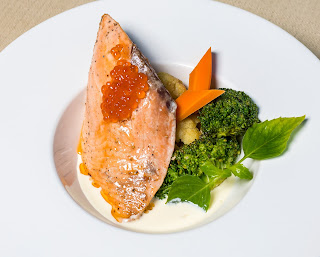Best Foods for Autoimmune Disease
Introduction
One in 13 people in the United States suffer from an autoimmune disease. This means that their bodies attack their healthy cells by mistake. Common symptoms include fatigue, pain, and brain fog. There is no known cure for autoimmune diseases, but there are ways to manage the symptoms and even heal the gut. One of the best ways to do this is with food. In this blog post, we will explore the best foods for autoimmune disease. These foods help to heal the gut, reduce inflammation, and ease symptoms.
What is an autoimmune disease?
An autoimmune disease is a condition in which your body’s immune system mistakenly attacks healthy tissue. The most common type of autoimmune disease is Type 1 diabetes, but there are many others.
Autoimmune diseases can be difficult to diagnose because they can cause a wide range of symptoms. In some cases, the symptoms may come and go, or they may flare up and then subside. This can make it hard to determine whether the problem is an autoimmune disease or something else.
There is no cure for autoimmune diseases, but treatments are available to help manage the symptoms and slow the progression of the disease. Some of the best foods for people with autoimmune diseases include:
-Omega-3 rich foods: Salmon, mackerel, herring, sardines, flaxseeds, chia seeds, and walnuts are all good sources of omega-3 fatty acids. These nutrients help reduce inflammation throughout the body.
-Probiotic foods: yogurt, kefir, sauerkraut, kimchi, and miso all contain probiotics. Probiotics are beneficial bacteria that help support gut health. A healthy gut is important for overall health, including reducing inflammation.
-Antioxidant-rich foods: berries, dark leafy greens, nuts, and seeds are all good sources of antioxidants. Antioxidants help protect cells from damage caused by free radicals. Free radicals are unstable molecules that can contribute to inflammation.
The best foods to eat with an autoimmune disease
If you have an autoimmune disease, you may be wondering what the best foods are to eat. While there is no one-size-fits-all diet for people with autoimmune diseases, there are some general guidelines that can help you choose foods that will help you feel your best.
Here are some of the best foods to eat if you have an autoimmune disease:
1. Foods that are rich in antioxidants. Antioxidants help to protect your cells from damage and can reduce inflammation. Some good sources of antioxidants include berries, dark leafy greens, and tomatoes.
2. Omega-3 fatty acids. Omega-3 fatty acids are anti-inflammatory and can help to improve symptoms of autoimmune diseases like rheumatoid arthritis and Crohn's disease. Good sources of omega-3s include fish, nuts, and seeds.
3. Probiotic-rich foods. Probiotics are beneficial bacteria that live in your gut and can help to improve gut health. Some probiotic-rich foods include yogurt, kimchi, and sauerkraut.
4. Garlic. Garlic has both antioxidant and anti-inflammatory properties and can be helpful in managing the symptoms of autoimmune diseases like lupus and psoriasis.
5. Turmeric . Turmeric is a spice that contains curcumin, a compound with powerful anti-inflammatory properties. Adding turmeric to your diet may help to reduce symptoms of autoimmune diseases like r
The worst foods to eat with an autoimmune disease
If you have an autoimmune disease, you may want to avoid the following foods:
1. Dairy products: Milk, cheese, and other dairy products can increase mucus production and inflammation in the body. They can also worsen symptoms of allergies and asthma.
2. Nightshade vegetables: Tomatoes, potatoes, peppers, and eggplants contain compounds that can aggravate inflammation in people with autoimmune diseases.
3. Refined sugars: Sugar can promote inflammation and worsen symptoms of autoimmune diseases. It’s best to avoid sugary foods and drinks, including candy, cake, cookies, soda, and fruit juice.
4. Trans fats: Trans fats are found in some processed foods and fast foods. They can increase inflammation in the body and worsen symptoms of autoimmune diseases.
5. gluten: Gluten is a protein found in wheat, rye, and barley. It can cause gut inflammation in people with celiac disease or non-celiac gluten sensitivity. If you have either of these conditions, it’s important to avoid gluten-containing foods.
Foods to avoid with an autoimmune disease
There are a few types of foods that can trigger or worsen autoimmune disease symptoms. These include:
-Processed and refined foods: These foods are high in sugar and unhealthy fats, which can lead to inflammation.
-Dairy products: Dairy can be difficult to digest and can contain harmful bacteria that can trigger an autoimmune response.
-Gluten: Gluten is a protein found in wheat, rye, and barley. For people with celiac disease or non-celiac gluten sensitivity, eating gluten can damage the intestines and cause other health problems.
-Nightshade vegetables: Nightshades include tomatoes, potatoes, peppers, and eggplants. These vegetables contain compounds that can trigger inflammation in some people with autoimmune diseases.
-Soy: Soy contains plant estrogens that can mimic the hormone estrogen in the body. This can throw off the body's hormone balance and trigger autoimmune symptoms.
Conclusion
There is no one-size-fits-all diet for autoimmune disease, but there are some foods that can help to reduce inflammation and promote healing. If you have an autoimmune disease, it's important to work with a registered dietitian or nutritionist to create an individualized meal plan. However, incorporating these anti-inflammatory foods into your diet may help to improve your symptoms and quality of life.



No comments: